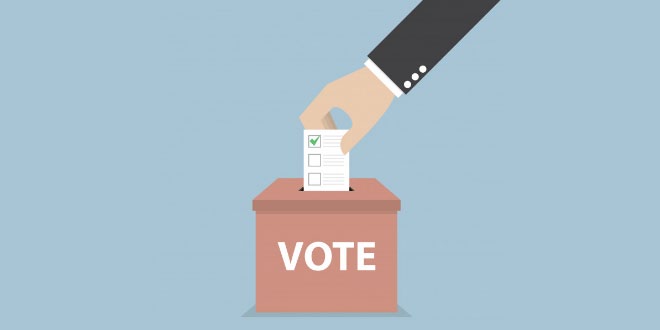Question:
- What are elections?
- “Elections are considered essential for any representative demo curacy.” Why?
- What is a constituency?
Answer:
- It is a mechanism by which people can choose their representatives at regular intervals and change them if they wish to do so.
- (a) In a representative democracy, people rule through their representatives.
(b) It gives an opportunity to the people to decide who will make laws for them. - For elections, the entire country is divided into fixed electoral areas with a body of registered voters. These areas are called constituencies.
Question: What makes elections in India democratic? Explain.
Answer:
- An Independent Election Commission: In our country, elections are conducted by an independent and a very powerful Election Commission (EC). It enjoys the same kind of independence that the judiciary enjoys. The Chief Election Commissioner (CEC) is appointed by the President Of India. But once appointed, the Chief Election Commissioner (CEC) is not answerable to the President or the government. Even if the ruling party or the government does not like what the Commission does, it is virtually impossible for it to remove the CEC.
- Popular Participation: In India, the poor, illiterate and underprivileged people vote in larger proportion as compared to the rich and the privileged sections. This is in contrast to western democracies. For example, in the United States of America, poor people, African-Americans and Hispanics vote much less than the rich and the white people.
- Acceptance of election outcome: The outcome of India’s elections speaks for itself. The ruling parties routinely lose elections in India, both at the national and the state levels. In fact, in every two out of the three, elections held in the last fifteen years, the ruling party lost the power.
Question: Mention any three provisions which makes Election Commission an independent body.
Answer:
- The Chief Election Commissioner (CEC) is appointed by the President of India. But once appointed, the Chief Election Commissioner is not answerable to the President or the government.
- During the election period, the EC can order the government to follow some guidelines, to prevent use and misuse of governmental power to enhance its chances to win elections, or to transfer some government officials.
- When on election duty, government officers work under the control of the EC and not the government.
Question: How many elections are held in India?
Answer: Majority there are four types of elections in India,details of which are mentioned below:
- General Elections: These elections are conducted for electing the members of Lok Sabha. The members elected during these elections are called MP’s (Member of Parliament). General elections are held in every 5 years.
- Assembly Elections: The State Assembly elections in India are the elections in which the Indian voters choose the members of the Vidhan Sabha (or State/Legislative Assembly). These elections are held every 5 years and the chosen members are called MLA’s.
- Rajya Sabha Elections: The members of Rajya Sabha are elected by the governing body of each state and union territory. There are 250 members in Rajya Sabha, out of which 12 are selected by the President of India. Out of 250, 238 are indirectly elected by the legislature of the each state and union territory.
- President Elections: Elected members of the houses (Lok Sabha and Rajya Sabha), state legislatures (Vidhan Sabha), are assigned the task of electing the President of India. President serves for a period of five years.
Question: Explain the role of the Election Commission in free and fair elections.
Answer: Functions of the Election Commission of India:
- Allotment of Election Symbols: The political parties of national standing are allotted permanent election symbols. These symbols help even an ordinary man to recognize the different parties instantly.
- Preparation of Electoral Rolls: Electoral Rolls are prepared in which the name, father’s name, age and sex of the voters are clearly mentioned.
- Delimitation of Constituencies: The whole area where elections are held, is divided into so many clear-cut constituencies, so that elections are held in an organised way.
- Fixing the Election Dates: The Election date is announced so that the voters could easily cast their votes on that particular date.
- Scrutiny (careful examination) of Nomination Papers: The candidates willing to contest the elections have to file the nominations up to a particular date. Then the Election Commission scrutinizes their papers and accepts or rejects the nomination papers as the case: may be.
- Checking Undue Interference of the Party-in-Power: Important duty of the Election Commission is to see that the party in power does in no way take an advantage over other parties or individuals.
 Class Notes NCERT Solutions for CBSE Students
Class Notes NCERT Solutions for CBSE Students



